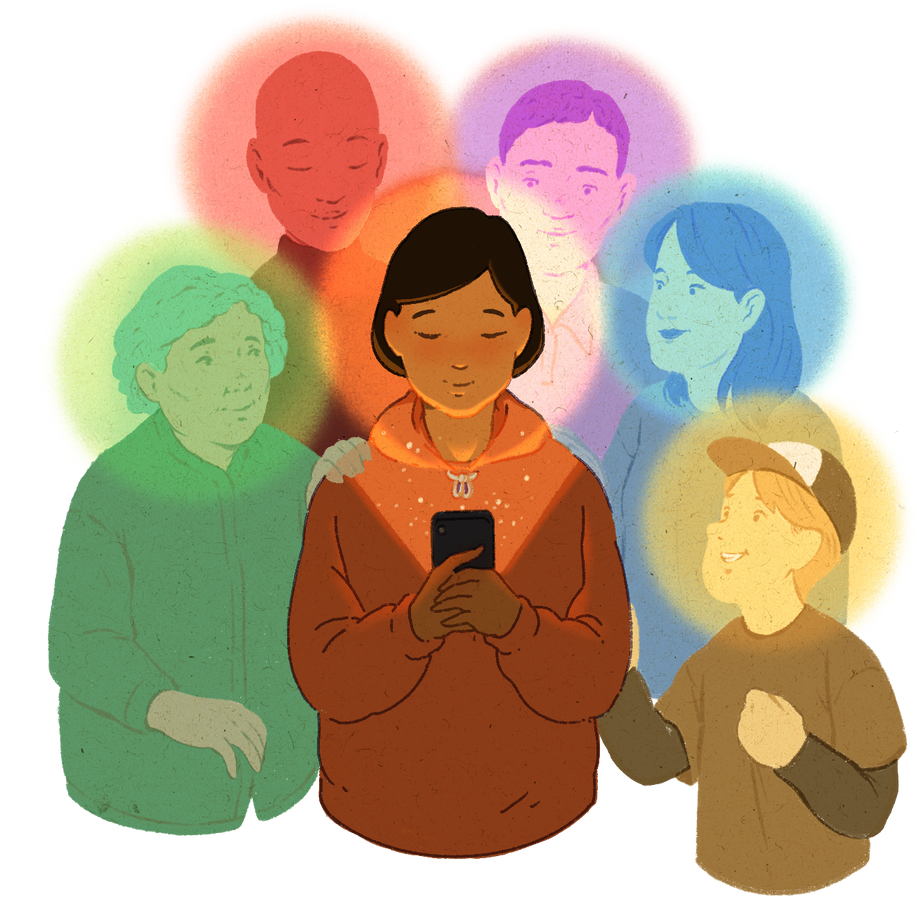Anne is carefully selecting which photo is best to post on Instagram. She’s on a trip to Paris and can't wait to share the joy with family, friends, and even the followers that she doesn't know. Social media is so important to her. She’s been addicted to it since her first post in high school.
Just as expected, ten minutes after posting, Anne has received countless likes. She feels an intense sense of pride and satisfaction. Two hours after posting, however, there are no more likes or comments, and Anne begins to feel lost and empty.
Catherine, Anne's best friend, liked Anne's photo as soon as she saw it. She was excited about Anne's trip to Paris and wanted more details about the trip, but it seemed like Anne didn't want to share anything other than this photo.
"Maybe she's concentrating on enjoying her trip, and I'd better not bother her," Catherine thought, and put down her phone.
From this vignette, we can see that the internet can make it easier for us to share our lives with others, and Anne can share photos with her friends hundreds of kilometers away in Paris. But it can also make it difficult for us to communicate. Many of us have experienced Catherine's feelings: curious but afraid of interruptions, and finally choosing silence.
After Anne happily shared her adventure, she, and her friends, felt more alone. Why?
Moira Burke of Carnegie Mellon University has done a study on social media and has the answer. In her article, The Relationship Between Facebook Use and Well-Being Depends on Communication Type and Tie Strength, published in 2016 in the Journal of Computer-Mediated Communication, she divides what people do on social media into three categories:
- One-click communications that have no deep meaning, usually a simple Like.
- Broadcast communications that are posted to an entire friend group, such as Anne's photo of the Eiffel Tower.
- And composed, one-on-one communications that are often more heartfelt. According to Moira’s study, only composed communications can alleviate loneliness and make us feel happy.
What happens to the scenario if Anne decides to call Catherine on the phone to share the stories from her trip? It's not hard to guess that they'll probably have a long phone call, with topics ranging from the trip to their favorite movies, and even planning their next trip together. Anne’s feeling of loneliness would then disappear.
Social media broadcast communications and one-click communications don't necessarily make people feel happy, and they can give us false satisfaction. What we are more eager to receive is a desire to communicate from the heart, or with a true commitment of presence and time.
People are accustomed to presenting their best selves on social media, choosing the best photos, editing the best words, and even choosing the best times. And this brings up another problem: Burke also found that people are slowly losing some of their basic communication skills, because when speaking face to face, we can't take the time to think through every word and show our best side at all times.
An email or SMS is indeed more valuable and emotional than a post. But we've all been there: spending hours thinking about how to respond to someone's message, or waiting in agony for a reply after sending it. Then the question is: When we spend so much time editing words, adding emojis, do we still feel authentic and spontaneous enough?
Composed communication is never powerful enough when we do it in real time with someone, when we are in the moment, feeling presence, without filtering our emotions. A carefully edited SMS does not necessarily carry real emotion either. What we really need is composed communication with presence.
Next time Anne wants to share a part of her day without feeling suddenly lonely afterwards, she could choose the classic way to do so—by giving a call—and if she wants to simply feel present with someone without having to talk, she could use Heallo.



